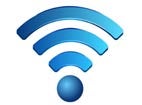It’s been a few months since two mega-deals were announced. First, on February 13, Comcast said it would acquire Time Warner Cable. About three months later, on May 18, AT&T announced that it would take over DirecTV.
Huge acquisition headlines inevitably are followed by long periods of silence. Eventually regulators start the process of assessing the deals. That phase is upon us, at least in the case of the Comcast-Time Warner Cable deal. The Federal Communications Commission (FCC) is asking the public to explain why they think the merger is a good or bad idea. Of course, the folks inspired to comment most often feel that the latter is true.
At LightReading, Mari Silbey highlighted opposition to the DirecTV/AT&T deal from Senator Al Franken (D-MN), who wrote a letter to the FCC and the U.S. Department of Justice suggesting that the telephone company could gain unfair advantage. Specifically, he worries that the telco would be better positioned to force its bundled service onto customers without offering a strong, standalone broadband service.
Silbey said that AT&T and Comcast both hope their respective deals will close this year. She also outlined the steps ahead:
The review process for two major industry mergers continues to chug along. This week, the FCC announced the members of the review committees for the proposed mergers. Now the FCC has opened up the public comment cycle on the Comcast/TWC deal, setting a time table for debate that leads into the fall. All comments and petitions must be filed with the FCC no later than Aug. 25. Responses must then be delivered by Sept. 23, with replies to responses due by Oct. 8.
The other satellite player, Dish Network, has told the FCC that it is uneasy with both the Comcast/Time Warner Cable and AT&T/DirecTV deals. According to eWeek, the company told the FCC in personal meetings and in a filing that letting players get too big can crowd others out of the market:
In a July 9 filing summarizing its six meetings (no more than two FCC commissioners can be in a private meeting, due to the Sunshine Act), Dish said it discussed the “changing nature of the pay-TV and broadband industries in light of growing industry consolidation” and explained that the FCC’s response to these mergers will affect the ability for Dish and other non-dominant players to compete in the broadband and video markets.
The story suggests that the Comcast deal raises the most serious concerns because it includes wired broadband infrastructure and therefore threatens competitors in three ways. It could create “choke points” that foreclose last mile access to consumers, disrupt interconnection points and unfairly exploit “fast lanes” made possible by recent changes to net neutrality rules.
Last week, Bloomberg reported that the Justice Department is asking the Walt Disney Co., Discovery Communications and CBS for information related to Comcast’s Time Warner Cable acquisition. The requests cut to the heart of whether the deal is anticompetitive:
While none of the companies has publicly opposed the acquisition, some have said they want the U.S. to ensure that Comcast won’t favor its own programming over their content if the merger is approved. Other media companies have also been approached, one of the people said.
It seems likely that both deals will be allowed to move forward, though. The game now is for the government to put safeguards in place that will protect consumers and businesses that rely on these four—soon to be two—companies.



